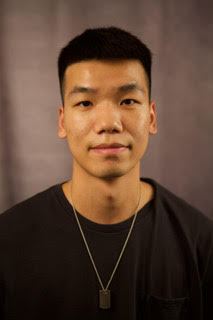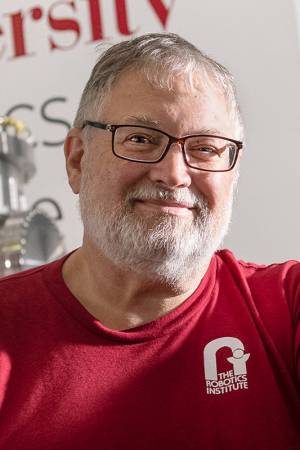Seminar
Robots That Know When They Don’t Know
Abstract: Foundation models from machine learning have enabled rapid advances in perception, planning, and natural language understanding for robots. However, current systems lack any rigorous assurances when required to generalize to novel scenarios. For example, perception systems can fail to identify or localize unfamiliar objects, and large language model (LLM)-based planners can hallucinate outputs that [...]
Sparse-view Pose Estimation and Reconstruction via Analysis by Generative Synthesis
Abstract: This talk will present our approach for reconstructing objects from sparse-view images captured in unconstrained environments. In the absence of ground-truth camera poses, we will demonstrate how to utilize estimates from off-the-shelf systems and address two key challenges: refining noisy camera poses in sparse views and effectively handling outlier poses. Bio: Qitao is a second-year [...]
EgoTouch: On-Body Touch Input Using AR/VR Headset Cameras
Abstract: In augmented and virtual reality (AR/VR) experiences, a user’s arms and hands can provide a convenient and tactile surface for touch input. Prior work has shown on-body input to have significant speed, accuracy, and ergonomic benefits over in-air interfaces, which are common today. In this work, we demonstrate high accuracy, bare hands (i.e., no special [...]
Auptimize: Optimal Placement of Spatial Audio Cues for Extended Reality
Abstract: Spatial audio in Extended Reality (XR) provides users with better awareness of where virtual elements are placed, and efficiently guides them to events such as notifications, system alerts from different windows, or approaching avatars. Humans, however, are inaccurate in localizing sound cues, especially with multiple sources due to limitations in human auditory perception such as [...]
Abstraction Barriers for Embodied Algorithms
Abstract: Designing robotic systems to reliably modify their environment typically requires expert engineers and several design iterations. This talk will cover abstraction barriers that can be used to make the process of building such systems easier and the results more predictable. By focusing on approximate mathematical representations that model the process dynamics, these representations can [...]
Autonomous Robotic Surgery: Science Fiction or Reality?
Abstract: Robotic assisted surgery (RAS) systems incorporate highly dexterous tools, hand tremor filtering, and motion scaling to enable a minimally invasive surgical approach, reducing collateral damage and patient recovery times. However, current state-of-the-art telerobotic surgery requires a surgeon operating every motion of the robot, resulting in long procedure times and inconsistent results. The advantages of [...]
Generative Modelling for 3D Multimodal Understanding of Human Physical Interactions
Abstract: Generative modelling has been extremely successful in synthesizing text, images, and videos. Can the same machinery also help us better understand how to physically interact with the multimodal 3D world? In this talk, I will introduce some of my group's work in answering this question. I will first discuss how we can enable 2D [...]
A retrospective, 40 Years of Field Robotics
Abstract: Chuck has been building and deploying robots in the field for the past 40 years. In this retrospective he will touch on the robots, people and experiences that have been part of the journey. From the early days in the 1980s with the Three Mile Island nuclear robots and the first outdoor autonomy robots [...]
Learning for Dynamic Robot Manipulation of Deformable and Transparent Objects
Abstract: Dynamics, softness, deformability, and difficult-to-detect objects will be critical for new domains in robotic manipulation. But there are complications--including unmodelled dynamic effects, infinite-dimensional state spaces of deformable objects, and missing features from perception. This talk explores learning methods based on multi-view sensing, acoustics, physics-based regularizations, and Koopman operators and proposes a novel multi-finger soft [...]
High-resolution cloth simulation in milliseconds: Efficient GPU Cloth Simulation with Non-distance Barriers and Subspace Reuse Interactions
Abstract: We show how to push the performance of high-resolution cloth simulation, making the simulation interactive (in milliseconds) for models with one million degrees of freedom (DOFs) while keeping every triangle untangled. The guarantee of being penetration-free is inspired by the interior-point method, which converts the inequality constraints to barrier potentials. Nevertheless, we propose a [...]









